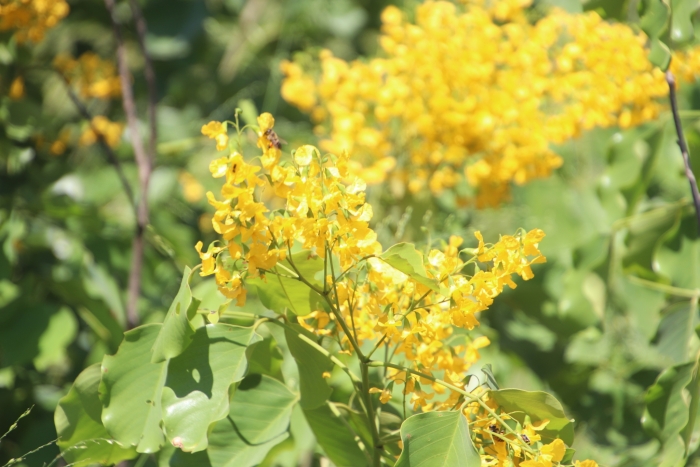Round-Leaved Bloodwood
(Pterocarpus rotundifolius)
Round-Leaved Bloodwood (Pterocarpus rotundifolius)
/
/

Tony Rebelo
CC BY-SA 4.0
Image By:
Tony Rebelo
Recorded By:
Copyright:
CC BY-SA 4.0
Copyright Notice:
Photo by: Tony Rebelo | License Type: CC BY-SA 4.0 | License URL: http://creativecommons.org/licenses/by-sa/4.0/ | Rights Holder: Tony Rebelo | Publisher: iNaturalist | Date Created: 2020-02-27T11:24:20-08:00 |

























Estimated Native Range
Summary
Pterocarpus rotundifolius, commonly known as the round-leaved bloodwood, is a deciduous tree native to a variety of habitats including savannas, bushveld, and dry river valleys in southern Africa. It is adaptable to different environments within its native range, which extends from Tanzania in the north to South Africa in the south. The tree typically grows to a height of 15-20 meters with a rounded canopy. The leaves are round, and the tree is named for its dark, reddish-brown sap, which resembles blood. The flowers are yellow and appear in small, dense clusters, usually blooming from September to November. The tree’s bark is rough and dark, providing an interesting texture in the landscape.
The round-leaved bloodwood is valued for its hardy nature and the shade it provides. It is used in large gardens and parks and can serve as an effective windbreak or for erosion control. In cultivation, it prefers full sun to partial shade and requires moderate water, thriving in well-drained soils. While it is not particularly prone to diseases, it can suffer from root rot if overwatered. It is also known for its termite-resistant wood, which is used in construction and furniture making.CC BY-SA 4.0
The round-leaved bloodwood is valued for its hardy nature and the shade it provides. It is used in large gardens and parks and can serve as an effective windbreak or for erosion control. In cultivation, it prefers full sun to partial shade and requires moderate water, thriving in well-drained soils. While it is not particularly prone to diseases, it can suffer from root rot if overwatered. It is also known for its termite-resistant wood, which is used in construction and furniture making.CC BY-SA 4.0
Plant Description
- Plant Type: Tree
- Height: 16-50 feet
- Width: 20-40 feet
- Growth Rate: Moderate
- Flower Color: Yellow
- Flowering Season: Spring
- Leaf Retention: Deciduous
Growth Requirements
- Sun: Full Sun
- Water: Medium
- Drainage: Medium, Fast
Common Uses
Bee Garden, Bird Garden, Butterfly Garden, Drought Tolerant, Low Maintenance
Natural Habitat
Native to savannas, bushveld, and dry river valleys in southern Africa
Other Names
Common Names: Munondo, Mukwa
Scientific Names: , Pterocarpus rotundifolius, Amerimnon rotundifolium, Dalbergia rotundifolia, Pterocarpus melliferus, Pterocarpus melliferus,
GBIF Accepted Name: